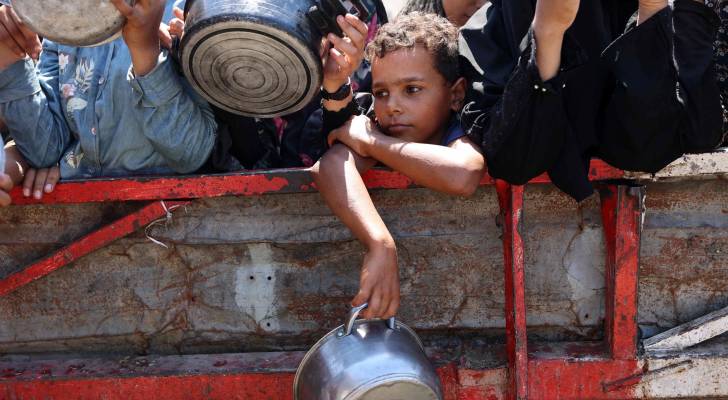A Palestinian boy holds an empty pot, waiting to receive cooked rice in Gaza (Credit: AFP)
'Israel' demands UN monitor to retract Gaza famine report
'Israel' has urged a UN-supported food security body to withdraw its latest findings, which declared famine conditions in parts of the Gaza Strip.
"Israel demands that the IPC will retract immediately its fabricated report and publish a notice," Eden Bar Tal, director general of 'Israel's' foreign ministry, said at a press conference on Wednesday.
Bar Tal accused the Integrated Food Security Phase Classification Initiative (IPC) of bias, calling it a "politicised" organisation that is "working for an evil terror organisation," in reference to Hamas.
He added that if the IPC does not comply "within a short time," 'Israel' would present what it described as "evidence" of irregularities in the report’s preparation to the group’s donors.
The UN announced last week that famine had officially taken hold in Gaza, pointing to what it described as 'Israel’s' "systematic obstruction" of humanitarian aid during the nearly two-year-long war
Read more: UN declares first-ever famine in Middle East, in Gaza
The Rome-based IPC reported that famine was already impacting around half a million people in Gaza governorate, which encompasses Gaza City and accounts for roughly one-fifth of the territory. The assessment also warned that by late September, famine conditions could spread to Deir al-Balah and Khan Younis, covering about two-thirds of the enclave.
'Israel' has sharply limited aid flows into Gaza throughout the conflict, at times halting shipments entirely. Prime Minister Benjamin Netanyahu dismissed the IPC’s conclusions, branding them an "outright lie." He insisted 'Israel' "does not have a policy of starvation," pointing instead to figures on humanitarian deliveries allowed through 'Israeli' crossings.
COGAT, the 'Israeli' defence body managing civil affairs in the Palestinian territories, also rejected the IPC’s findings, arguing they relied on "partial data and unreliable sources."
In response, Jean-Martin Bauer, who heads food security analysis for the UN World Food Programme, defended the IPC’s credibility, calling it the "gold standard" for assessing famine conditions worldwide.




